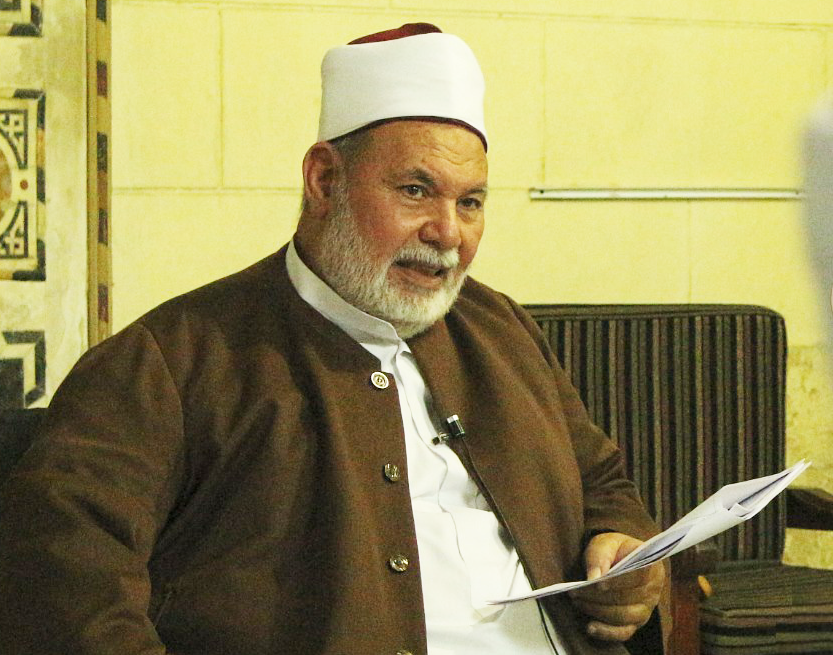This article analyzes the transformative role of Prophet Muhammad as a murabbī. I apply the hermeneutic of reading the divine text as a structural unity, a concept known as al-waḥda al-binā’iyya li-l-Qur’ān. After defining the concept of murabbī, I suggest that a holistic reading of the Qur’an can help us rebuild our concepts from within the Qur’an, a methodological approach that we can use to reshape the current religious discourse. I present the Prophet’s (pbuh) mission as a roadmap, a model that envisions a holistic relationship between the Qur’an and the Sunna as its final goal. I then devote special attention to this model by focusing on his teaching strategies and how they impacted the first generation of Muslims. I argue that a strong methodology based on the Qur’an and Sunna can help revive the role of a compassionate Muslim community. I close by stressing the significance of developing this traditional role and applying it in all aspects of contemporary life.
Category: Quran
Socioeconomic and Gender Justice in the Qur’an: Modern Challenges
This chapter explains the meaning of gender and socioeconomic justice in the Qur’ān and Sunna and its impact on women, family and society. It provides a concise overview of the Qur’ānic paradigm and its principles on gender-justice, and an overview of familial relations and its impact on socioeconomic stability. It also examines the controversial views on the concept of qiwamma, and its impact on gender roles in the family and society. It argues that the Qur’ānic organic unity and Qur’ānic principles can be used as a methodological model for interpreting the Qur’ān and examines how to engage the Prophet’s Sunna holistically in the light of the Qurʾānic messages and objectives. Finally, the chapter concludes by presenting some effective strategies on empowering women and the poor, reducing poverty, and preserving family stability.
Seeking Guidance: Contemplating the Qur’an
In this age of globalization, technology and the vast spread of information, we as Muslims need a model to better capture dimensions of Muslim reality more effectively. We need guidance. As it was well stated from the first surah, al-Fatihah the Opening. “You alone do we worship, and You alone do we ask for help. Guide us on the straight path, the path of those who have received your grace; not the path of those who have brought down wrath, nor of those who wander astray” (1:5-7). Surah al-Fatihah teaches us the attitude of a seeker-after-truth and to recognize the fact that the Lord of the Universe is the source of all knowledge. God continues revealing his love and mercy upon us by teaching us where to find the guidance. The Qur’ān is Huda (guidance), as stated in the second surah 2:2-5, “This is the Book; in it is guidance sure, without doubt, to those who are cautious and mindful of Allah.” Read More
Family Relations: An Islamic Perspective
Islam, as God’s final message to humanity, came to light in a brutal and cruel environment. Violence was a common practice in pre-Islamic Arabic, and the weak and the needy, orphans and widows, and slaves and servants, both there and around the world, had no defined rights. Islam came to establish justice and mercy in the heart of a cruel world. The Qur’an emphasizes that all people are created equal as regards their inherent worth and value, regardless of race, ethnicity, gender, or class. Islam prohibited any oppressive behavior that violates justice, mercy, equality, and freedom. Read More
Interfaith Just Peacemaking: A Muslim Reflection
As Muslims, we regard the Qur’an as the last divine speech revealed by God. It came with a message that is universal and to an audience that comprises all of humanity. Islam yields a set of peace-building values that, if constantly and systematically applied, can transcend all levels of conflicts. These values include justice (‘adl), beneficence (ihsan), and wisdom (hikmah), which constitute core principles in peacemaking strategies and conflict resolution. Read More
The Qur’anic Model on Social Change: Family Structure as a Method of Social Reform
Islam emphasizes the belief that the family is the cornerstone of human civilization. This article explains that Islamic teachings regarding family structure are unique in providing theoretical and practical answers to modern challenges and have the ability to reform any deviation. Read More
I Am Muslim by Dr. Taha Jabir Al-Alwani
A man of his time and a pioneer of Islamic thought, my father Dr. Taha Jabir Al-Alwani lived his life serving humanity.
Before departing this world on March 4, 2016, my father wrote the piece “I Am Muslim.” It is essentially a mission statement for Muslims around the world — a message to uphold the true, untainted values of Islam.

